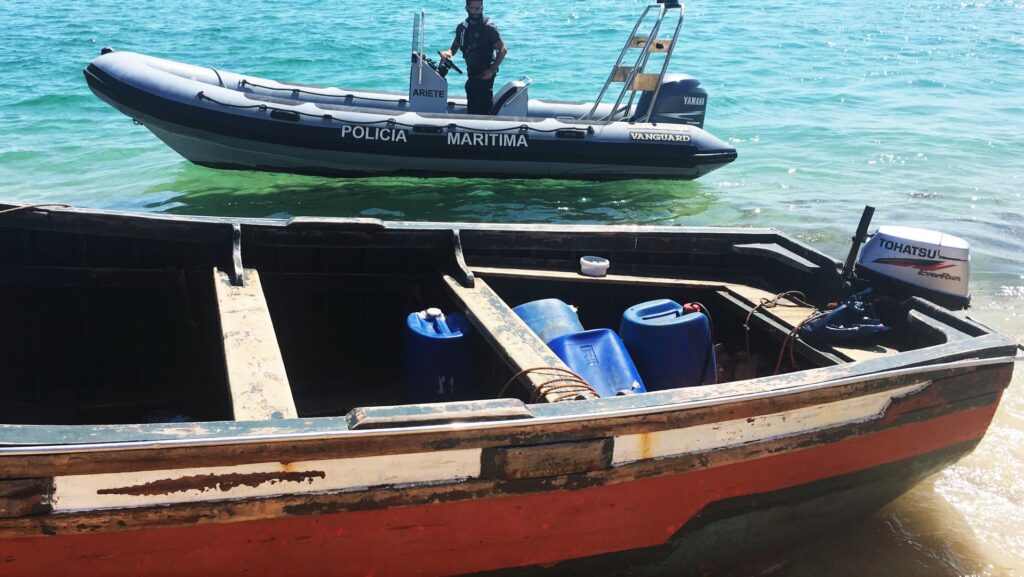The arrivals of illegal immigrants in the Algarve, less than 100 people, do not yet make it possible to say if there is a new migratory pattern or if Portugal is just a crossing point, according to the Secretary of State for Migration.
“There are less than 100 people who arrived. I know they had a lot of media visibility, but there are less than 100, which still does not allow us to know if it is a new migratory pattern. We still don't even have data to know if they wanted to come to Portugal or if they wanted to leave Portugal and go to other countries. More than half have asked for asylum”, but none of these people have yet been granted any status, said in an interview to Lusa the Secretary of State for Integration and Migration, Cláudia Pereira, on the occasion of the international day of Migration, which is marked today.
Since December 2019, small groups of migrants have sporadically arrived in the Algarve in boats, originating in Morocco.
This reality led the Portuguese State to decide to accelerate a process that was already underway to reach a bilateral agreement with Morocco, to be worked on by the Ministry of Foreign Affairs, to accommodate migrations based on the search for work in Portugal, said Cláudia Pereira, who also mentioned that, so far, the Government does not know of any other possible route besides this one.
Regarding the case of asylum seekers housed in overcrowded hostels in Lisbon where outbreaks of Covid-19 were detected at the beginning of the pandemic, the Secretary of State said that they were all relocated, either in hostels or in other temporary accommodation or apartments, having been defined that in hostels the maximum capacity is 40% to ensure that these people are guaranteed “the distance necessary to live in decent conditions”.
“At the time, around 730 asylum seekers were tested, several of them were positive, more than 200. over-accommodation and at the moment the maximum is 40% occupancy”, said Cláudia Pereira.
As for the asylum seekers who tested positive at the time and, therefore, were transferred to the Ota air base, the government official mentioned that these people have also been relocated to accommodation, avoiding situations of overcrowding, stressing that the decision to transfer to the Ota base Ota, who was prepared to receive Covid-19 patients, was taken when the pandemic was still at an early stage, there was little knowledge about the disease and “other measures would have been taken now”.
Official figures provided by the Government reveal that by December 14, among the immigrant population in Portugal, 25.071 cases of infection by the new coronavirus and 186 deaths had been registered.
“There are a significant number of infected immigrants and also a significant number of deaths during the pandemic. A significant number because they were a part of the population where social and economic inequalities were felt the most. Many of them deprived of employment, many of them being able to have social support, were found in areas where it was more difficult to get information and where there were cases of overcrowding and that is also why they were among the most affected by the pandemic», said Cláudia Pereira.
Facilitating access to health care and social support was the objective of the order that granted temporary regularization to all immigrants who had submitted an application for a residence permit and for which they were still awaiting a decision, recalled the Secretary of State.
«Now any immigrant citizen is regularized until March 31st, which means that any enrollment in a school, a university, a lease, a new job has all the necessary documentation. The latest data we have is that there were 245 immigrants who were covered by this measure”, said Cláudia Pereira.
Data on access to health, in turn, show that these 99 immigrants enrolled in the health system in order to have access to health care during the pandemic “and of these around 33.800 had a permanent health card number for be better integrated into the Portuguese health system”.
“It was a way of being able to control the effects of the pandemic also for a matter of public health and, secondly, to be able to give social support to these immigrants who were already working in Portugal”, said the government official.



















Comments